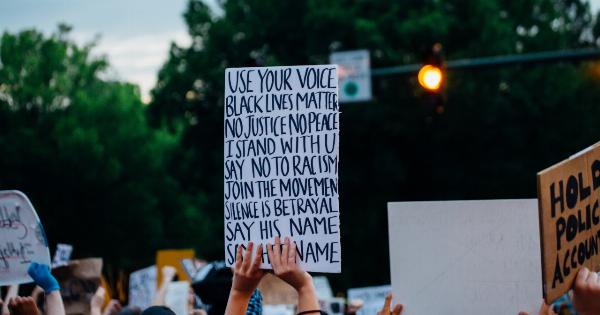Bullying is a serious issue that affects people of all ages, genders, and races. It’s a problem that can happen in any environment, including the neonatal unit.
The neonatal unit is a place where parents and families bring their premature babies and sick newborns for care, support, and treatment. However, it can also be a place where bullying occurs.
Defining Bullying
Bullying is defined as any repetitive, intentional behavior that intends to hurt others physically or emotionally. It can take many forms, such as physical, verbal, emotional, or cyberbullying.
In the neonatal unit, bullying can manifest as medical intimidation, verbal abuse, or social exclusion.
Medical Intimidation
The neonatal unit is a high-pressure environment where decisions need to be made quickly to save fragile lives. Because of this, medical professionals can sometimes intimidate parents into agreeing with their recommendations.
This can be detrimental to both the parent and the baby. Parents should feel empowered to ask questions, voice concerns, and make informed decisions about their child’s care without fear of retribution.
Medical professionals should take the time to explain procedures, treatments, and interventions in a clear and understandable way, allowing parents to make informed choices.
Verbal Abuse
Verbal abuse can take many forms, such as name-calling, insults, or accusations. In the neonatal unit, verbal abuse can be directed at parents who may not understand medical jargon or are emotionally vulnerable due to their child’s condition.
Medical professionals should be trained to communicate effectively and sensitively with parents, avoiding any language that could be considered abusive or derogatory.
Social Exclusion
Social exclusion is a form of bullying that involves intentionally excluding someone from a group or activity. In the neonatal unit, social exclusion can occur in a variety of ways.
For example, medical professionals may exclude parents from discussions about their child’s care, leaving them feeling isolated and powerless. Other parents may also exclude parents of sick or premature babies, forming cliques and making it difficult for new parents to feel welcomed.
The Consequences of Bullying
The consequences of bullying are far-reaching and can last well into adulthood. Babies who are subjected to bullying in the neonatal unit may experience long-term effects on their development, mental health, and emotional wellbeing.
Parents who are bullied may experience trauma, anxiety, and depression, which can impact their ability to bond with their child and advocate for their rights. Medical professionals who engage in bullying behavior may face legal and ethical consequences, including loss of licensure or disciplinary action.
The Need for Change
It’s clear that bullying has no place in the neonatal unit. Parents, caregivers, and medical professionals must work together to create a safe and supportive environment for both babies and parents.
This can be achieved through education, training, and awareness programs that teach parents and medical professionals about the harmful effects of bullying and how to prevent it. Medical institutions should also have policies in place that ensure the safety and rights of parents and babies are protected.
The Importance of Advocacy
In addition to education and awareness, advocacy is a critical component of preventing bullying in the neonatal unit.
Parents who feel empowered to advocate for their child’s care and rights are less likely to be subjected to bullying behavior from medical professionals. Medical professionals who understand the importance of advocacy are also more likely to work collaboratively with parents and other healthcare providers to provide the best possible care for their patients.
Conclusion
Bullying is a serious issue that affects people of all ages and can have long-lasting consequences.
In the neonatal unit, bullying can harm both babies and parents, and it’s up to all of us to work towards creating a safe and supportive environment. We must all take responsibility for preventing bullying behavior and advocate for the rights and safety of all babies and parents in the neonatal unit.




























